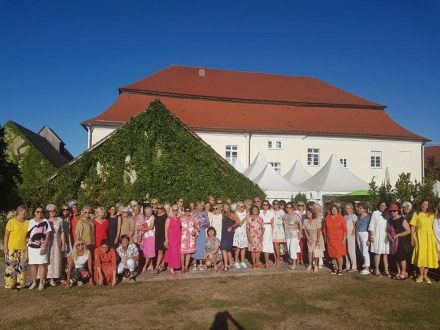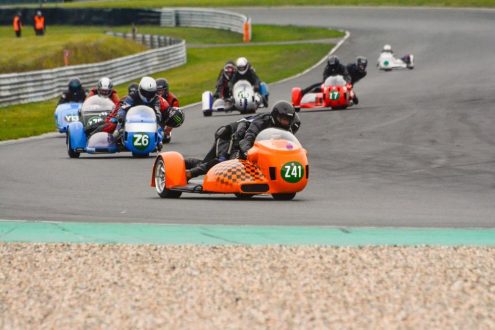IPC to explore providing the opportunity for 10 sports to conduct classification at the Tokyo 2020 Paralympic Games
- Suspending the IPC’s zero classification policy is a one-off to address the challenges some sports are facing to classify all athletes before the Games
- The IPC is working to ensure that no prospective Tokyo 2020 athlete misses out on competing due to the lack of access to classification opportunities
- The IFs and NPCs are urged to do everything they can to ensure athletes are classified in the lead up to the Games
Following extensive consultation with International Federations and the Tokyo 2020 Organising Committee, the International Paralympic Committee (IPC) Governing Board has temporarily set aside its ‚zero classification policy‘ at Paralympic Games for Tokyo 2020 and will now allow 10 Para sports to operationally prepare for conducting classification in the host city ahead of this summer’s Paralympic Games.
The decision was based on the currently identified athlete numbers who have to be classified as well as the feasibility to provide sufficient classification opportunities between now and the Games. It aims to ensure that no Tokyo 2020 athlete misses out on competing at the Games due to the lack of access to classification opportunities.
Each IF has identified the maximum number of Tokyo 2020 prospective athletes due to undergo classification between now and the Games across all Para sports. The National Paralympic Committees (NPCs) are asked to ensure, where possible, that the majority of their athletes are classified prior to the Games at the increasing number of competitions that are now taking place around the world. The IPC aims to confirm the number of athletes to be classified in Tokyo immediately prior to the Games.
Classification is a unique cornerstone of the Paralympic Movement and performs two critical functions: it determines which Para athletes are eligible to compete in a sport; and it groups athletes into sport classes that aim to ensure that the impact of impairment is minimised and sporting excellence determines which athlete or team is ultimately victorious.
Andrew Parsons, IPC President, said: "Ensuring that athletes are classified prior to competing at the Tokyo 2020 Paralympic Games is crucial to safeguarding the integrity and credibility of the competition. I would like to thank Tokyo 2020 for their flexibility in working with us to find a solution to the issue we face.
"Since the pandemic began, our Classification department has worked tirelessly with the International Federations to provide safe and secure classification. The reality is that for many sports classification and competition opportunities remain limited, while for others the disruption caused by the pandemic has had a significant impact on athletes‘ ability to attend classification before the Games.
"This decision to provide classification opportunities at the Tokyo 2020 Paralympic Games has not been taken lightly by the IPC, bearing in mind the potential impact on athletes who may change class or be found non-eligible at such a late stage. However, the pros outweigh the cons in this matter, and we believe this decision will be welcomed by the athlete community, NPCs and International Federations relieving some of the pressure they face.
"With less than 150 days to go until the Games, I strongly encourage NPCs to ensure they do everything they can to still get their athletes classified ahead of the Games as the number of athletes who will be able to be classified in Tokyo will be limited."
The IPC, the International Federations and Tokyo 2020, are now working on operational planning for classification activities in Tokyo for the following 10 Para sports: athletics, boccia, canoe, cycling (track and road), judo, rowing, sitting volleyball, swimming, wheelchair rugby and wheelchair tennis.
These 10 sports either have a potentially larger pool of athletes requiring classification before the Games or have a limited ability to schedule classification opportunities due to various reasons related to the pandemic.
What this means is that there may be a possibility for athletes in these sports to be classified at the Games in Tokyo. Final decisions on what classification opportunities will be made available in Tokyo will be confirmed in the coming months, although the number of slots available is expected to be limited. This is so the IPC and the International Federations can assess what classification opportunities take place as scheduled or are subject to further postponement or cancellation.
For the remaining 12 sports on the Games programme, the IPC, in consultation with the respective International Federations, has decided not to look at creating classification opportunities in Tokyo. This is either because no athletes on the Tokyo pathway requiring classification were identified, or because if they do, plans have been put in place to ensure these athletes attend a classification opportunity before coming to Tokyo.
The IPC remains committed to maximising access to athlete classification opportunities in the lead-up to Tokyo and thereby minimise the Games-time classification activities. The International Federations governing the 22 sports on the Games programme are making every effort to ensure classification and competition opportunities resume between now and August, and various contingency options have been prepared by each IF to ensure this happens.
The ‚zero classification policy‘ was first introduced in 2014 as a strategic decision to minimise Games-time classification to reduce the impact of any last-minute classification decisions on athletes‘ preparation for the pinnacle event of their career and to reduce its operational impact on the Games and the competition schedule.
This is a one-off measure for the Tokyo 2020 Paralympic Games and the zero classification policy is envisaged to remain in place for future Games. The zero classification policy for the Beijing 2022 Paralympic Winter Games remains in place.
The original Tokyo 2020 Paralympic Games Qualification Regulations were developed based on ‚zero classification‘. To be eligible, each athlete was required to undergo classification before the Games and hold a sport class status of either "Confirmed" or "Fixed Review Date later than 31 December 2020".
Following the Games postponement, athletes are now required to hold a sport class status "Confirmed" or "Fixed Review Date later than 31 December 2021" in order to be eligible for the Games. As of July 2020, all 22 sports on the Games programme have published their revised qualification regulations and include the above revised athlete eligibility criteria. This change significantly increases the pool of athletes requiring classification prior to Tokyo 2020.
International Paralympic Committee
Adenauerallee 212-214
53113 Bonn
Telefon: +49 (228) 2097-200
Telefax: +49 (228) 2097-209
https://www.paralympic.org
![]()




